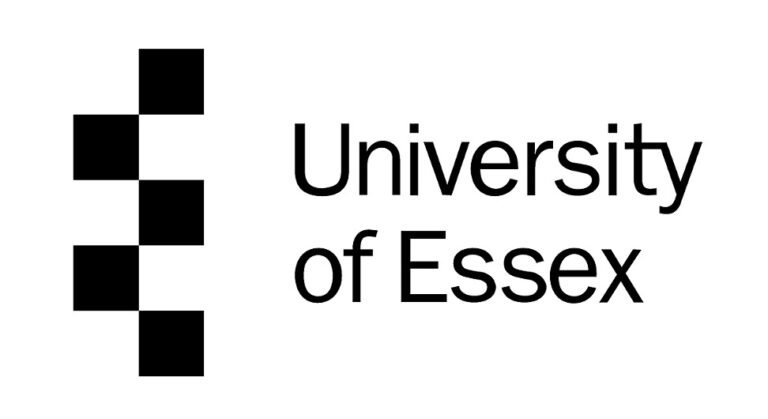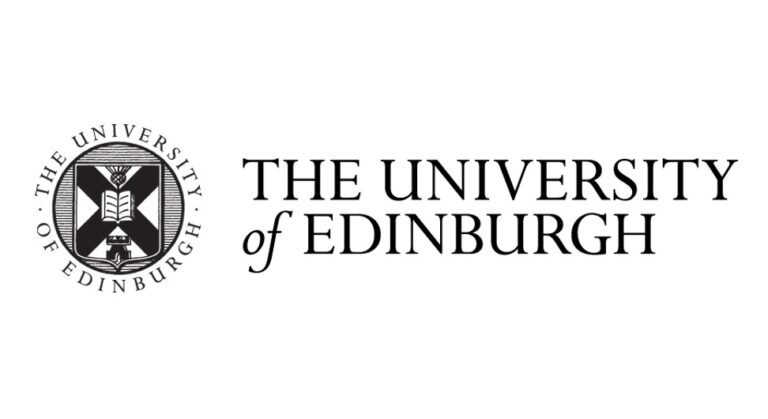An Integrated PhD provides a route into research study if you do not have a Masters degree, or have very little research training. It enables you to spend your first year completing a full-time Masters-level qualification, followed by a full-time PhD studied over 3-4 years or a part-time PhD studied over 6-7 years. We also offer a ‘standard’ PhD in this subject which can be studied either full-time (3-4 years) or part-time (6-7 years).
Cognitive neuroscience is the scientific study of biological substrates underlying cognition, with a focus on the neural substrates of mental processes. It is a branch of both psychology and neuroscience, overlapping with disciplines such as biological psychology, cognitive psychology and neuropsychology. Cognitive neuropsychology uses data from single cases of individuals with brain injury or neurological illness to refine theoretical models of cognitive processing.
In your first year on our Integrated PhD Psychology with Cognitive Neuroscience and Neuropsychology, you will study both cognitive neuroscience and neuropsychology which will give you a thorough grounding in the scientific investigation of the neural mechanisms underlying human behaviour and the effects of brain injury on cognitive function. You will be taught the theoretical and biological foundations of cognitive science, and undertake advanced training in statistics and neuropsychological research methods. Your first year gives you advanced research training which provides you with an excellent preparation to start the PhD element of this course.
In your second year you move into the PhD element of the course where research supervision is available in the fields of cognitive psychology, sensory and cognitive neuroscience, and social psychology. You study in a stimulating and vibrant research environment, and we provide excellent research facilities. In general, our PhD students enjoy the same access to neuroscience and other research equipment as our academic staff, and access to our research participant pool, which is essential for your experimental research. You also benefit from the supportive supervision given by our staff, and the friendly and collegiate atmosphere provided by fellow students. This ensures that we have an exemplary record in supporting our PhD students to produce a high quality thesis.
Our Doctoral Training Partnerships (DTPs), offer you skills training and funding for your postgraduate research. We are supported by some of the most prestigious funding bodies, including the European Commission and the Leverhulme Trust.
- We offer a range of PhD studentships and funding opportunities.
- We provide excellent state-of-the-art facilities for study, with extensive laboratory space for experimental psychology and special facilities for visual and auditory perception, developmental psychology and social psychology, with our Hearing Research Laboratory and our Visual Perception Unit.
- We also have our Centre for Brain Sciences (CBS), a state-of-the-art research facility dedicated to the study of brain activity in relation to psychological processes. This provides a dynamic resource for psychology and neuroscience, with specialised laboratories for investigating brain activity.
Our expert staff
Our psychology lecturers include award-winning teachers and prize-winning researchers who are international experts in their own research areas.
Our staff carry out research into areas of psychology that fall under our three key themes: thinking about the world, interacting with the world, and experiencing the world. These three themes help tie your knowledge together as they directly feed into our modules, where you can study how we remember things, what captures out attention, how relationships work, what our emotions do with us, or the impact of culture on ourselves and others.
Our department is expanding, and has recently appointed a number of excellent researchers whose expertise increases the diversity and depth of our skills base.
After your first year, when you start your PhD, you will be allocated a supervisor whose role it is to guide you through the different stages of your research degree. In some cases, you may have joint supervision by two members of our staff.
The support provided by your supervisor is a key feature of your research student experience and you will have regular one-to-one meetings to discuss progress on your research. Initially, your supervisor will help you develop your research topic and plan.
Twice a year, you will have a supervisory panel meeting, which provides a more formal opportunity to discuss your progress and agree your plans for the next six months.
Specialist facilities
We are committed to giving you the best access to state-of-the-art facilities in higher education, housed entirely within our purpose-built psychology building on our Colchester Campus.
We provide excellent state-of-the-art facilities for your study, with extensive laboratory space for experimental psychology and special facilities for visual and auditory perception, developmental psychology and social psychology.
We also have our Cognitive Neuroscience Laboratory, a state-of-the-art research facility dedicated to the study of brain activity in relation to psychological processes. This provides a dynamic resource with specialised laboratories for investigating behaviour and brain activity including: two eye tracking labs for recording eye movements, four electroencephalography (EEG) labs for recording cortical oscillatory activity, event-related potentials (ERP) and functional connectivity; two near-infrared spectroscopy (NIRS) labs for measuring changes in blood oxygenation levels; four neuromodulation labs including transcranial magnetic stimulation (TMS), repetitive TMS (rTMS), transcranial direct current stimulation (tDCS) and neuro-navigation facilities.
Your future
With the skills and knowledge you acquire from studying within our Department of Psychology, you will find yourself in demand from a wide range of employers.
Our graduates have been employed in clinical psychology, educational psychology, criminal and forensic psychology.
We also have excellent links with the research community; we are recognised by the ESRC as providing excellent postgraduate training and are an accredited Doctoral Training Centre, offering several studentships.
Our recent PhD students have taken up post-doctoral positions in other top UK universities and international universities (in the US, Italy and Australia), as well as being appointed to lectureships.
Entry requirements
UK entry requirements
You will need a 2:2 degree, or equivalent, in any subject.
Our four year integrated PhD, allows you to spend your first year studying at Masters level in order to develop the necessary knowledge and skills and to start your independent research in year two.
International & EU entry requirements
We accept a wide range of qualifications from applicants studying in the EU and other countries. Get in touch with any questions you may have about the qualifications we accept. Remember to tell us about the qualifications you have already completed or are currently taking.
ALBANIA
ALGERIA
ANDORRA
ANGOLA
ANTIGUA AND BARBUADA
ARGENTINA
ARMENIA
ARUBA
AUSTRALIA
AUSTRIA
AZERBAIJAN
BAHAMAS
BAHRAIN
BANGLADESH
BARBADOS
BELARUS (BYELORUSSIA)
BELGIUM
BELIZE
BENIN
BERMUDA
BHUTAN
BOLIVIA
BOSNIA AND HERZEGOVINA
BOTSWANA
BRAZIL
BRUNEI
BULGARIA
BURKINA FASO
BURUNDI
CAMBODIA (KAMPUCHEA, KHMER R)
CAMEROON
CANADA
CAPE VERDE ISLANDS
CENTRAL AFRICAN REP
CHAD
CHILE
CHINA
COLOMBIA
COMOROS
CONGO
CONGO (DEM REB, ZAIRE)
COSTA RICA
CROATIA
CUBA
CYPRUS
CZECH REPUBLIC
DENMARK
DJIBOUTI
DOMINICA
DOMINICAN REP
EAST TIMOR
ECUADOR
EGYPT
EL SALVADOR
EQUATORIAL GUINEA
ERITREA
ESTONIA
ETHIOPIA (ABYSSINIA)
FIJI
FINLAND
FRANCE
GABON
GAMBIA
GEORGIA
GERMANY
GHANA
GIBRALTAR
GILBERT ISLANDS (KIRIBATI)
GREECE
GRENADA
GUATEMALA
GUIANA, FRENCH
GUINEA
GUINEA BISSAU
GUYANA
HAITI
HONDURAS
HONG KONG
HUNGARY
ICELAND
INDIA
INDONESIA
IRAN (ISLAMIC REP)
IRAQ
IRELAND, REP
ISRAEL
ITALY
IVORY COAST
JAMAICA
JAPAN
JORDAN
KAZAKHSTAN
KENYA
KOREA SOUTH
KOSOVO
KUWAIT
KYRGYZSTAN (KIRGIZIA)
LAOS
LATVIA
LEBANON
LESOTHO
LIBERIA
LIBYA
LIECHTENSTEIN
LITHUANIA
LUXEMBOURG
MACEDONIA. ALSO SKOPJE
MADAGASCAR (MALAGASY REP)
MALAWI
MALAYSIA
MALDIVE ISLANDS
MALI
MALTA
MARSHALL ISLANDS
MAURITANIA
MAURITIUS
MEXICO
MOLDOVA
MONACO
MONGOLIA, OUTER
MONTENEGRO
MONTSERRAT
MOROCCO
MOZAMBIQUE
MYANMAR (formerly Burma)
NAMIBIA
NAURU
NEPAL
NETHERLANDS (HOLLAND)
NEW ZEALAND
NICARAGUA
NIGER
NIGERIA
NORWAY
OMAN (MUSCAT AND OMAN)
PAKISTAN
PALESTINE
PANAMA
PAPUA NEW GUINEA
PARAGUAY
PERU
PHILIPPINES
POLAND
PORTUGAL (MADEIRA, AZORES)
QATAR
ROMANIA
RUSSIA
RWANDA
SAMOA (WESTERN)
SAN MARINO
SAUDI ARABIA
SENEGAL
SERBIA
SEYCHELLES
SIERRA LEONE
SINGAPORE
SLOVAKIA
SLOVENIA
SOLOMON ISLANDS
SOMALI REPUBLIC
SOUTH AFRICA
SOUTH GEORGE & STH SANDWICH IS
SOUTH SUDAN
SPAIN
SRI LANKA (CEYLON)
ST. KITTS AND NEVIS
ST. LUCIA
ST. VINCENT
SUDAN
SURINAM
SWAZILAND
SWEDEN
SWITZERLAND
SYRIA
TAIWAN
TAJIKISTAN
TANZANIA
THAILAND
TOGO
TONGA
TRINIDAD AND TOBAGO
TUNISIA
TURKEY
TURKMENISTAN
TUVALU, ALSO ELLICE ISLANDS
UGANDA
UKRAINE
UNITED ARAB EMIRATES
UNITED STATES
URUGUAY
UZBEKISTAN
VANUATU
VENEZUELA
VIETNAM, SOC REP
YEMEN (PDR,ADEN,SOCOTRA)
ZAMBIA
ZIMBABWE
Sorry, the entry requirements for the country that you have selected are not available here. Please contact our Graduate Admissions team at pgquery@essex.ac.uk to request the entry requirements for this country.
English language requirements
If English is not your first language, we require IELTS 7.0, or equivalent, with a minimum score of 5.5 in all other components.
Structure
Course structure
Most of our taught courses combine compulsory and optional modules, giving you freedom to pursue your own interests. All of the modules listed below provide an example of what is on offer from the current academic year. Our Programme Specification provides further details of the course structure for the current academic year.
Our research-led teaching is continually evolving to address the latest challenges and breakthroughs in the field. The course content is therefore reviewed on an annual basis to ensure our courses remain up-to-date so modules listed are subject to change.
The research element of your degree doesn’t have a taught structure, giving you the chance to investigate your chosen topic in real depth and reach a profound understanding. In communicating that understanding, through a thesis or other means, you have a rare opportunity to generate knowledge. A research degree allows you to develop new high-level skills, enhance your professional development and build new networks. It can open doors to many careers.
We understand that deciding where and what to study is a very important decision for you. We’ll make all reasonable efforts to provide you with the courses, services and facilities as described on our website and in line with your contract with us. However, if we need to make material changes, for example due to significant disruption, we’ll let our applicants and students know as soon as possible.
COMPONENT 01: CORE
COMPONENT 02: COMPULSORY
COMPONENT 03: COMPULSORY
COMPONENT 04: COMPULSORY
COMPONENT 05: COMPULSORY
Teaching
Our modules are taught through lectures, laboratory practicals, seminars, independent reading and research projects and we host a very active programme of research seminars.
Assessment
Full-year modules are most often examined using a three-hour examination, and half-year modules by a combination of two-hour examination and coursework (e.g., essays, oral presentations).
The award of a PhD signifies an original and substantial contribution to knowledge that means you can be considered an expert in your field. The majority of your learning during the PhD element of this course comes from ‘hands on’ experience of designing, conducting and analysing your original research, as well as from the demanding process of writing and submitting a PhD. To help in this process, you attend several taught courses in the first year of the PhD element of this course and all our research students are required to undertake postgraduate research training modules as part of their studies.
At the end of your first and second years of the PhD element of this course you will prepare a 10,000 word document that contains a review of relevant literature and summarises findings from your empirical work conducted in that year. You will also take part in a Postgraduate Research conference in which you make an oral presentation of this work to the Department of Psychology. The submission of the 10,000 word document in particular helps you prepare for the writing of your thesis.
Dissertation
Students within our Department of Psychology submit a dissertation of up to 80,000 words for their PhD. We take pride in our completion record with our PhD students. We achieve this, in part, by ensuring from the outset that you follow a clear path to ensure completion across the three years of the PhD element of this course – with specific appropriate milestones at the end of your first and second years.
Fees and funding
Home/UK fee
£4,786 per year
International fee
£21,500 per year
Fees will increase for each academic year of study.
At Essex we pride ourselves on being a welcoming and inclusive student community. We offer a wide range of support to individuals and groups of student members who may have specific requirements, interests or responsibilities.
Find out more The University makes every effort to ensure that this information on its programme specification is accurate and up-to-date. Exceptionally it can be necessary to make changes, for example to courses, facilities or fees. Examples of such reasons might include, but are not limited to: strikes, other industrial action, staff illness, severe weather, fire, civil commotion, riot, invasion, terrorist attack or threat of terrorist attack (whether declared or not), natural disaster, restrictions imposed by government or public authorities, epidemic or pandemic disease, failure of public utilities or transport systems or the withdrawal/reduction of funding. Changes to courses may for example consist of variations to the content and method of delivery of programmes, courses and other services, to discontinue programmes, courses and other services and to merge or combine programmes or courses. The University will endeavour to keep such changes to a minimum, and will also keep students informed appropriately by updating our programme specifications. The University would inform and engage with you if your course was to be discontinued, and would provide you with options, where appropriate, in line with our Compensation and Refund Policy.
The full Procedures, Rules and Regulations of the University governing how it operates are set out in the Charter, Statutes and Ordinances and in the University Regulations, Policy and Procedures.



